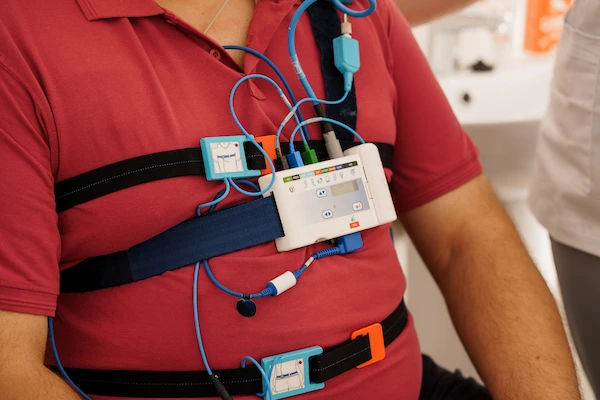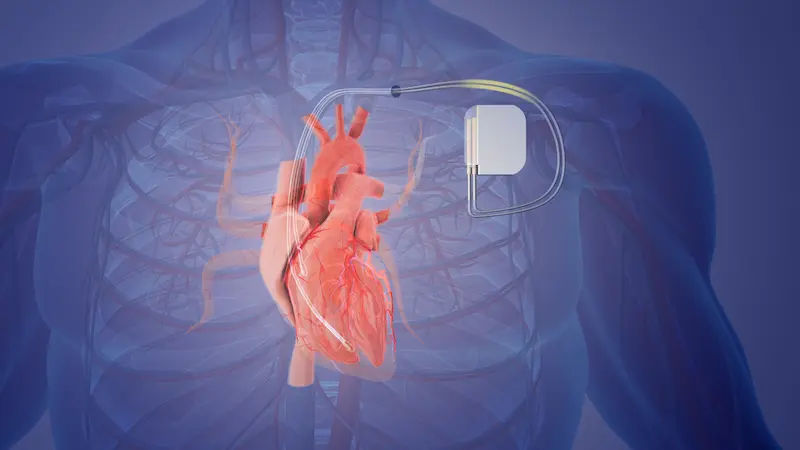- Male
- 61 Years
- 20/02/2025
My mom was diagnosed with chest pain on December 7, 2018. She's in the hospital, and the doctor did an angiography and is suggesting a bypass. I'm really worried and just want to know if the bypass is absolutely necessary and how long we can safely delay it. She's had blood pressure for about 10 years and diabetes for the last 4 years. Could you please advise?
Answered by 1 Apollo Doctors
"Hi Nirav, based on the information provided, if your mother has been diagnosed with chest pain and the doctor has recommended bypass surgery after performing Angiography, it is likely that the bypass surgery is necessary to improve blood flow to the heart. Given her history of high blood pressure and diabetes, it is important to follow the doctor's recommendation in a timely manner to prevent any further complications. I would recommend discussing any concerns or questions about the timing of the bypass surgery with the treating physician to determine the best course of action. In the meantime, it is important for your mother to continue taking her prescribed medications for blood pressure and diabetes as directed. For chest pain relief, she can take medications like Aspirin and Nitroglycerin as prescribed by the doctor. It is important to follow the doctor's advice regarding the dosage and frequency of these medications. Regular follow-up appointments with the doctor are also essential to monitor her condition and make any necessary adjustments to her treatment plan. If you have any further questions or concerns, feel free to ask. Take care."
Dr. Shubham Suggests...
Consult a Cardiologist
Answered 04/07/2025
0
0


Ask Apollo
AI powered Health Chatbot
-
Understanding the Need for Bypass Surgery
- Bypass surgery is often recommended after angiography if significant blockages are found, especially in patients with chest pain, hypertension, and diabetes.
-
Factors Influencing the Decision
- Long-standing hypertension and diabetes can worsen heart disease, increasing the urgency for surgery. Angiography results help assess blockage severity.
-
Risks of Delaying Bypass Surgery
- Delaying surgery may increase the risk of heart attack or worsening symptoms. It's crucial to weigh these risks with your healthcare provider.
-
Possible Alternatives and Interim Management
- Temporary management might include medications and lifestyle changes, but these should be discussed with a cardiologist.
-
Importance of Personalized Medical Advice
- Decisions should be based on individual health status and made in consultation with your mom's cardiologist and cardiac surgeon.
-
Recommended Next Steps
- Discuss concerns with the healthcare team to understand risks and benefits. Monitor symptoms closely and seek immediate care if they worsen.
Recommended next steps
Consult a Cardiologist
Answered 10/09/2025
0
0
More Cardiology Health Queries
View allI've been having this really intense chest pain whenever I'm sleeping or after sitting down for a long time. It's weird because it never happens when I'm walking around. The pain doesn't spread to my jaw or arms, and I'm not experiencing any breathlessness, but my digestion isn't right either. This has been going on for about a month now, but only occasionally. Could you give me some advice on what's going on or what I should do?
Ecg and x-ray chest pa view and cardiac markers is advised to the patient.
Answered by 1 Apollo Doctors
I'm really worried because I was just told I've got a ruptured mitral valve. Is this really serious? What should I be doing to take care of myself with this condition? Would really appreciate some advice on precautions.
Mitral valve rupture is a serious condition that can lead to complications if not managed properly. Some precautions you can take include: 1. Follow your doctor's treatment plan and take medications as prescribed. 2. Avoid strenuous physical activities and get plenty of rest. 3. Monitor your symptoms regularly and report any changes to your healthcare provider. 4. Maintain a healthy diet low in sodium and saturated fats. 5. Avoid smoking and limit alcohol consumption. 6. Stay up to date with regular follow-up appointments with your cardiologist. As for medications, you may be prescribed medications such as Lisinopril (ACE inhibitor) and Furosemide (diuretic) to help manage symptoms and prevent complications.
Answered by 1 Apollo Doctors
I've been noticing that my heartbeat is a real problem for me. I get stressed really easily, and then I just find myself getting angry. Is there something I can do about this? Can stress and anger actually affect my heart rate like this? Any insights would be greatly appreciated.
ecg and cardiac markers are advised
Answered by 1 Apollo Doctors
Disclaimer: Answers on Apollo 247 are not intended to replace your doctor advice. Always seek help of a professional doctor in case of an medical emergency or ailment.



